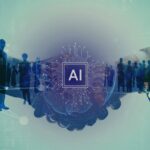 As we settle into 2025, artificial intelligence is steadily reshaping our world. The year started with strong predictions about AI boosting security and profits, yet while some forecasts have come to life, others remain more of a hopeful possibility.
As we settle into 2025, artificial intelligence is steadily reshaping our world. The year started with strong predictions about AI boosting security and profits, yet while some forecasts have come to life, others remain more of a hopeful possibility.
One trend you’re likely hearing about is agentic AI—systems that operate with a measure of independence. Although these autonomous agents still grapple with issues like security and reliability, their ability to take on tasks once left solely to humans is quietly transforming many workplaces.
Projects such as OpenAI’s Operator and GitHub’s Copilot offer a clear glimpse into this shift, as more companies weave AI into the very fabric of their operations. It’s not just about cutting-edge research; it’s a practical evolution affecting everyday business strategy.
Deloitte predicts that by the end of this year, 25% of enterprises using generative AI might deploy these autonomous agents—a number that could climb to 50% by 2027. At the same time, Gartner suggests that over 40% of such projects may not get past the experimental stage, reminding us that innovation often comes with its fair share of trial and error.
The job market is already feeling the impact. If you’ve ever struggled to secure that first job out of university, you might understand the growing concerns that increased automation contributes to higher unemployment among graduates. The shift forces us all to rethink which skills are best suited for the future.
There’s also buzz around a speculative forecast known as the AI-2027 scenario, which imagines AI leaping from current capabilities to a state resembling superintelligence by 2027. While this remains a theoretical exercise, it does prompt us to consider the broader societal and geopolitical changes that rapid AI progress might bring about.
Today’s operational systems, like Agent-0 and Agent-1, are early indicators of this change. They may still have their limitations, yet their increasing presence in roles traditionally filled by humans signals a shift in how we approach work in many sectors.
Amidst all this change, the value of mentorship and ongoing skill development can’t be overstated. As you navigate these evolving technologies, ensuring effective knowledge transfer and staying adaptable will be key to thriving in tomorrow’s job market.
In the end, the future course of AI will be shaped by a mix of regulation and our ability to adapt. While there are exciting new opportunities on the horizon, proactive strategies will be essential to smooth over the inevitable bumps along the road.








